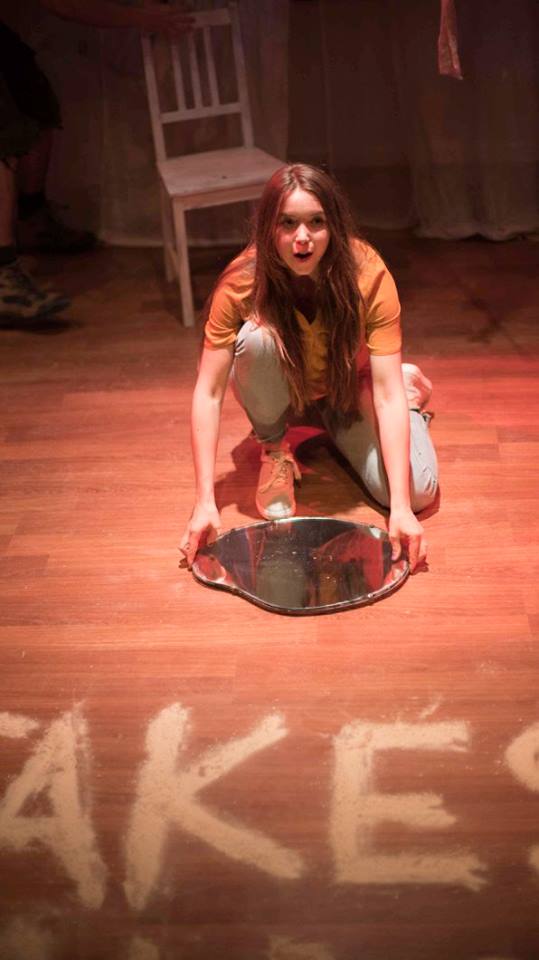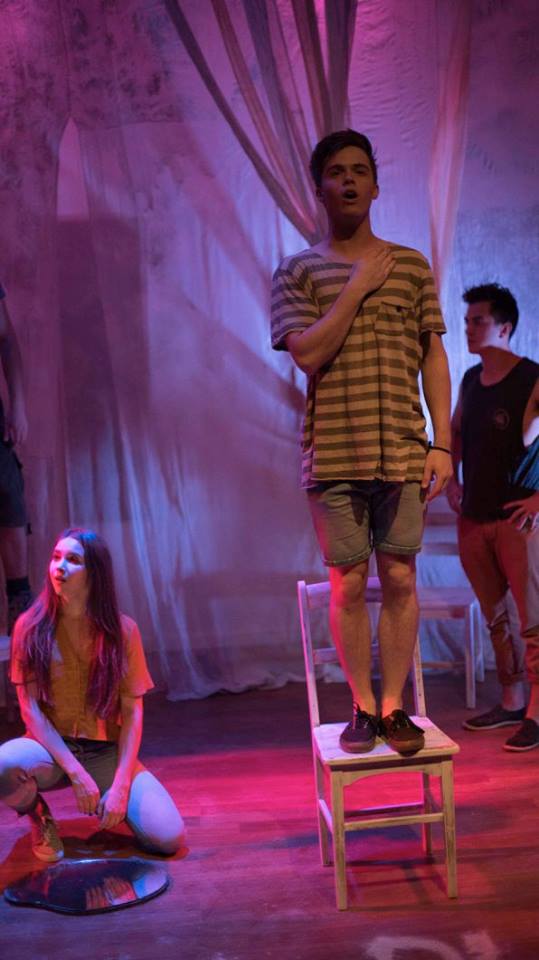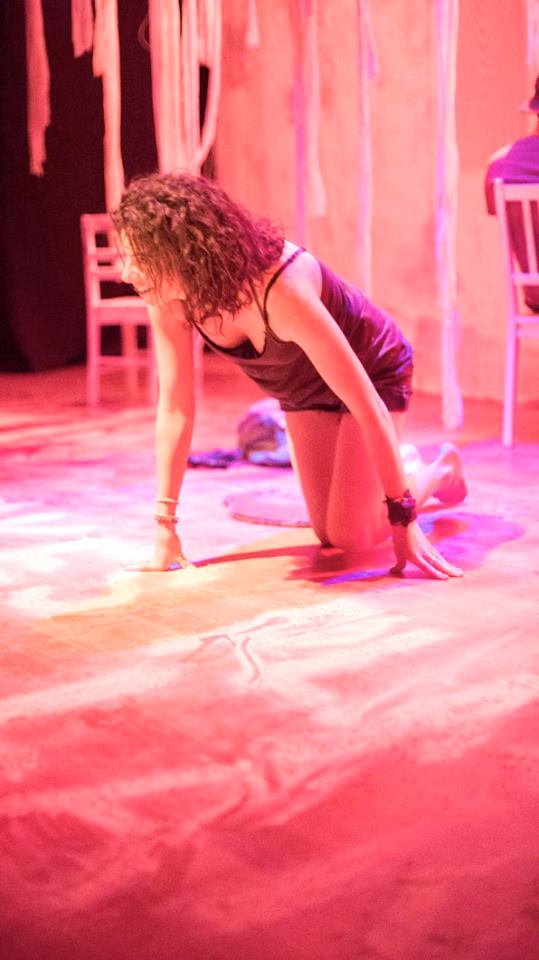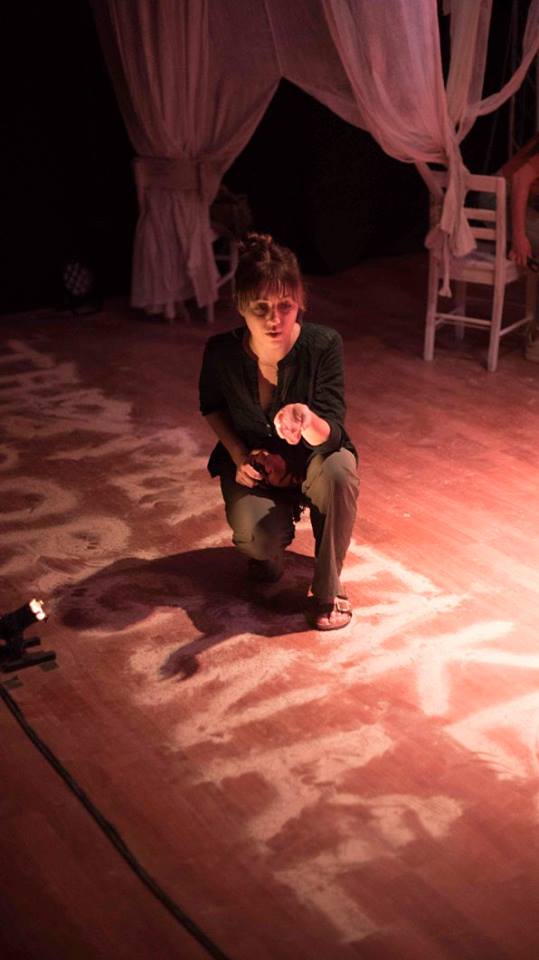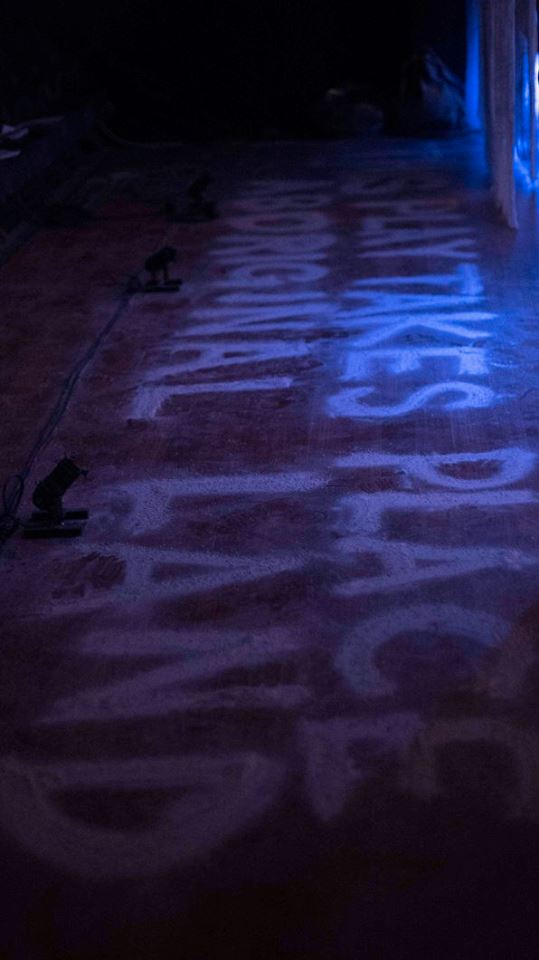GALLERY
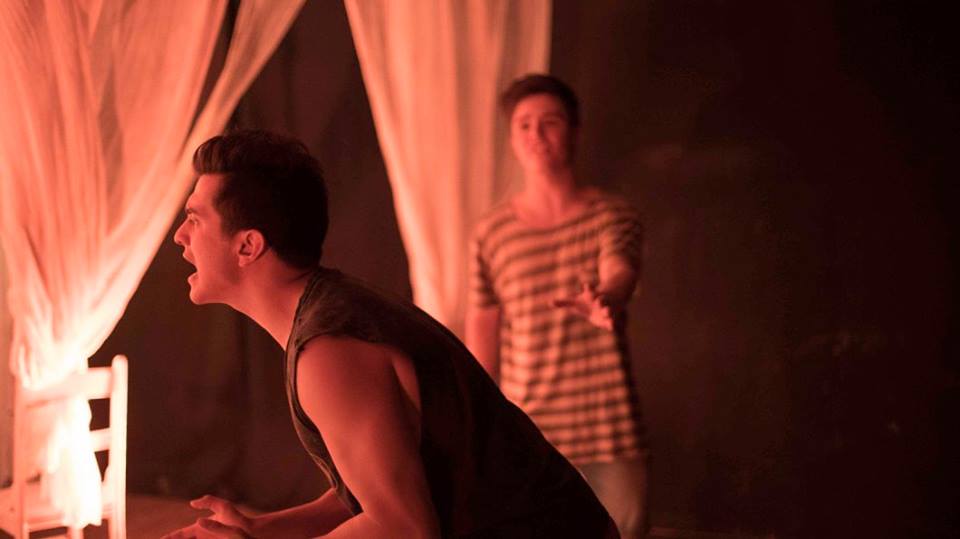
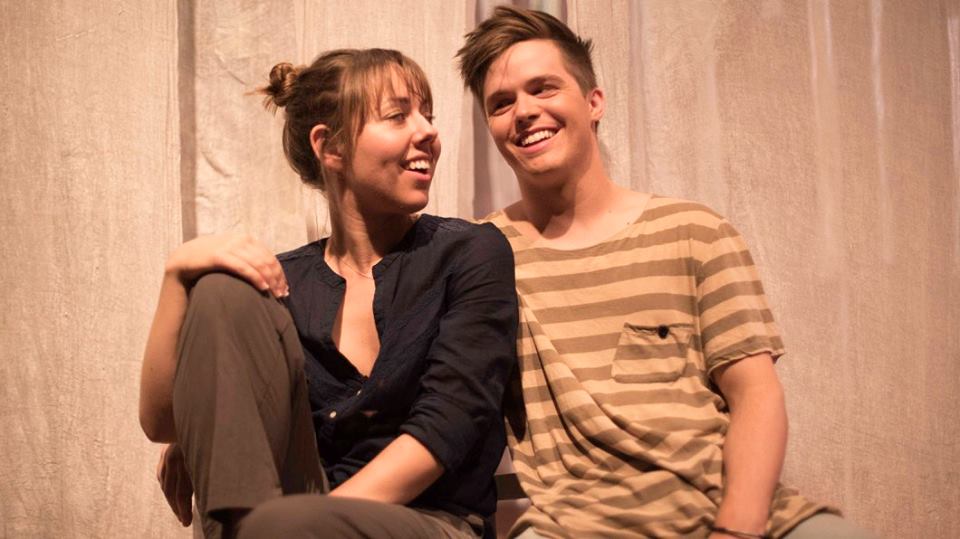
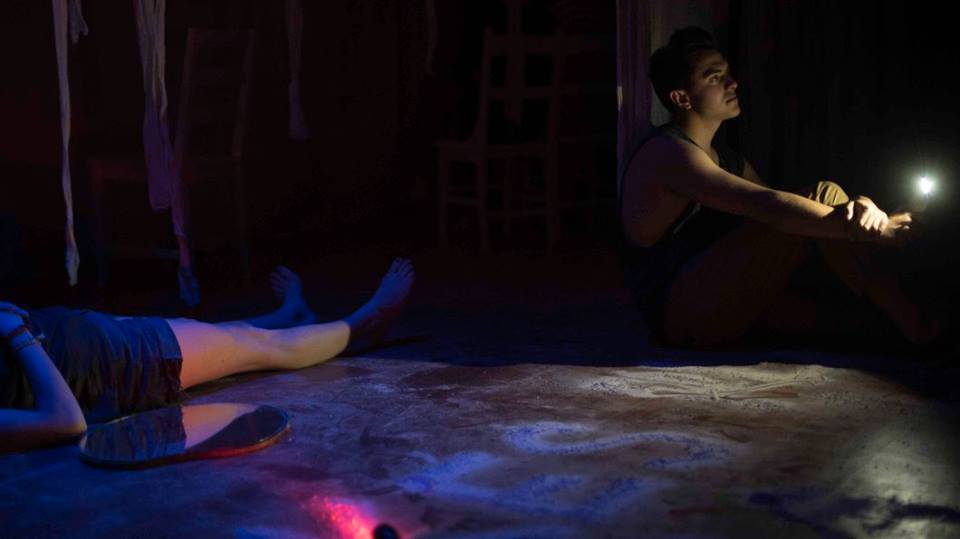
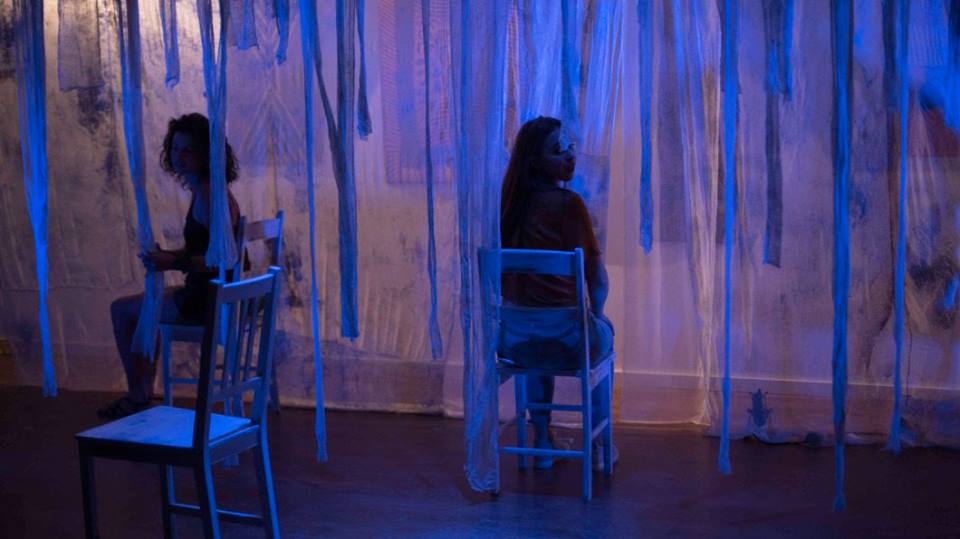
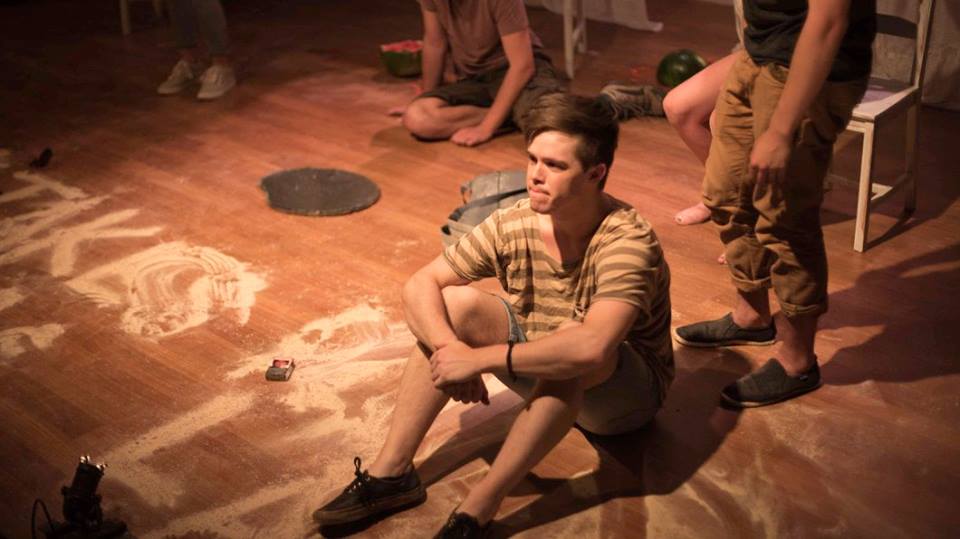
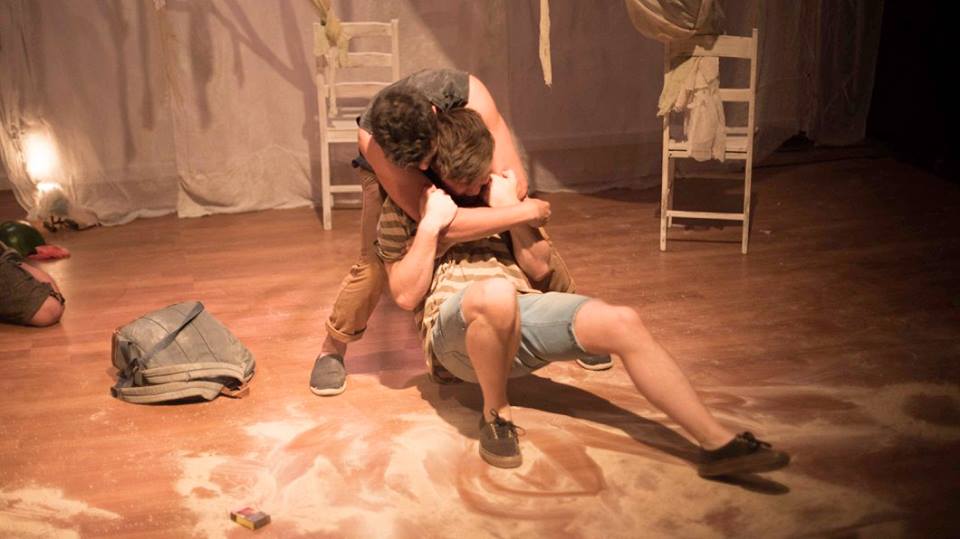
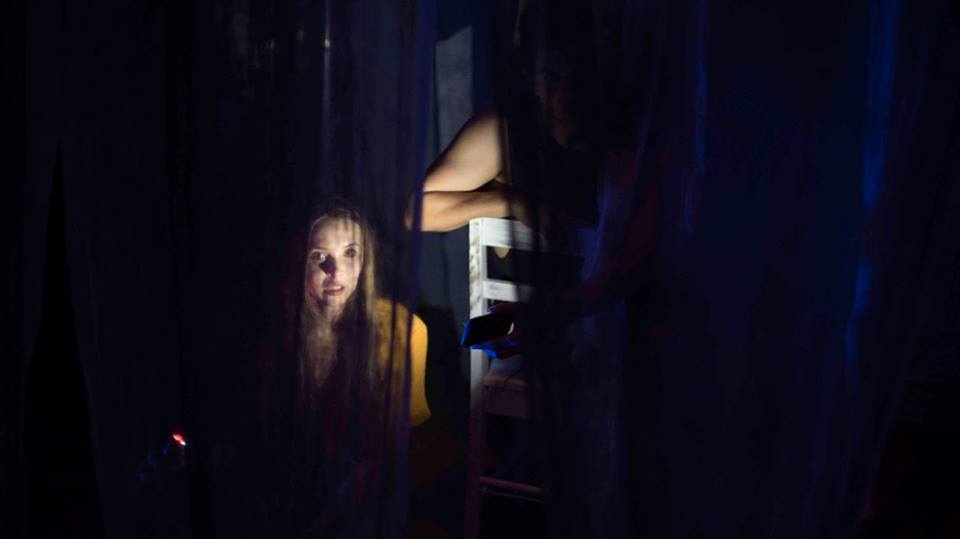
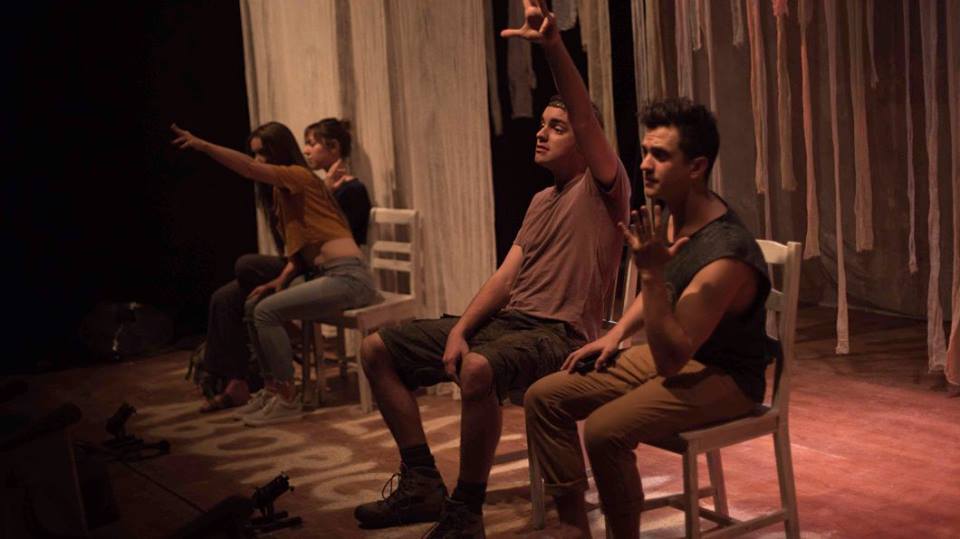
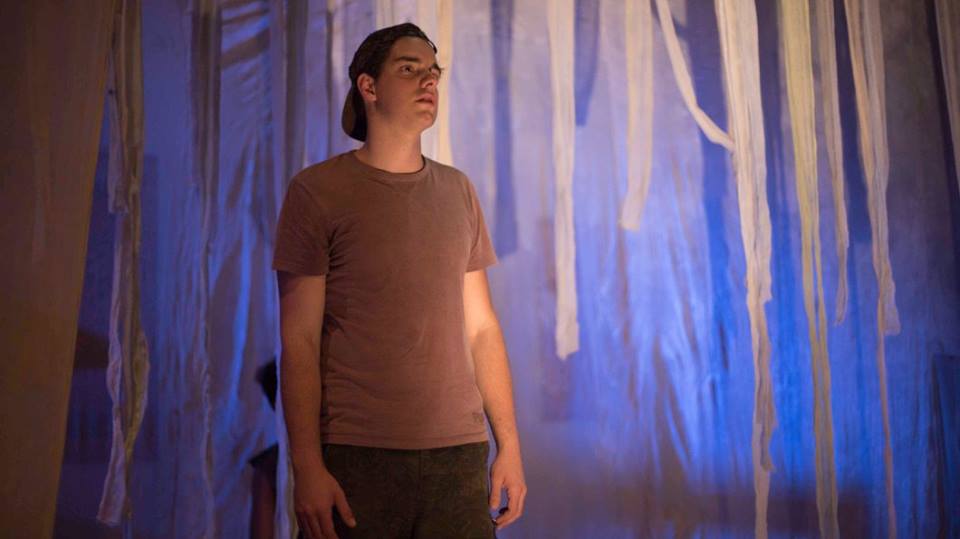
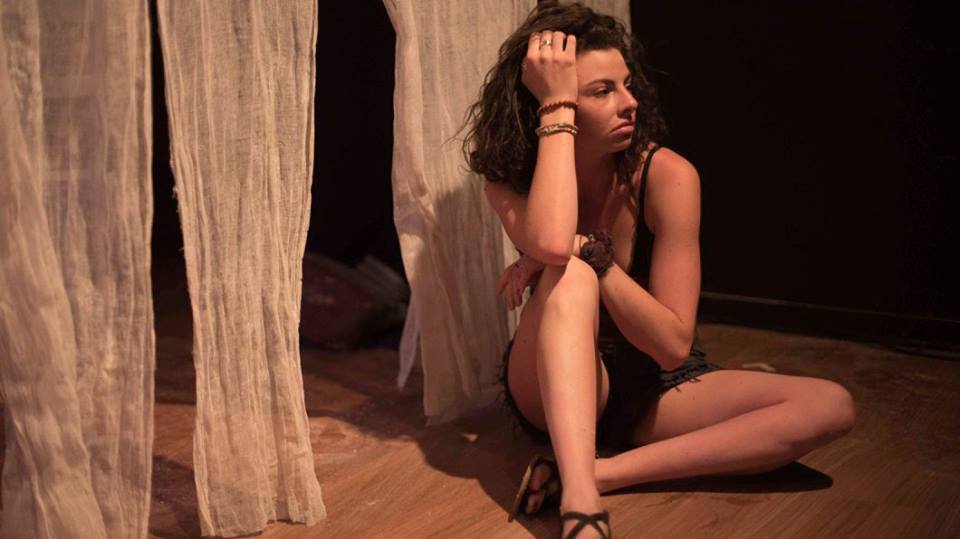
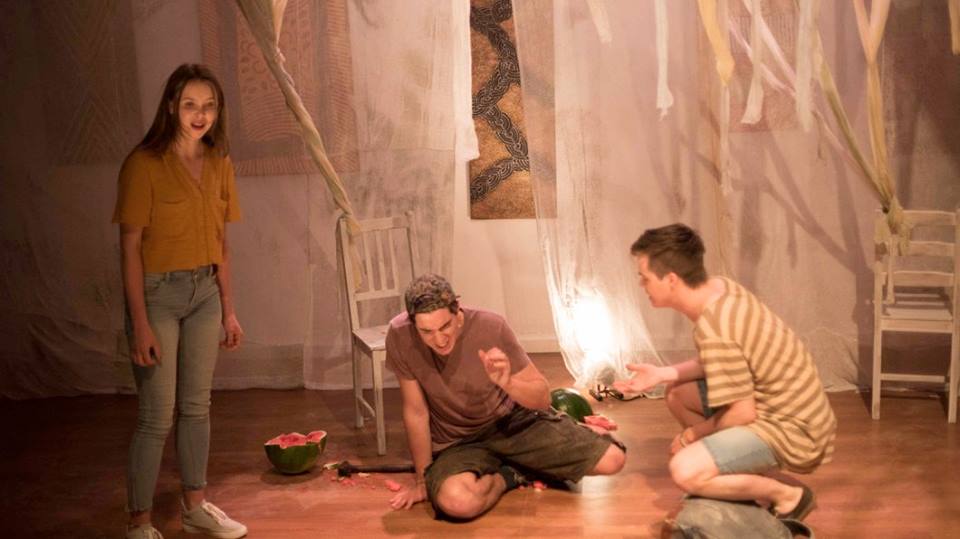
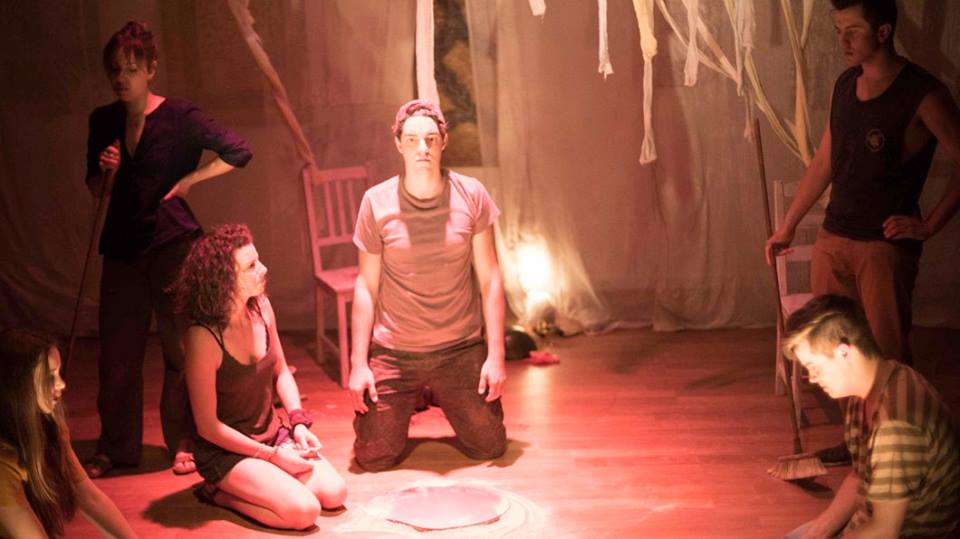
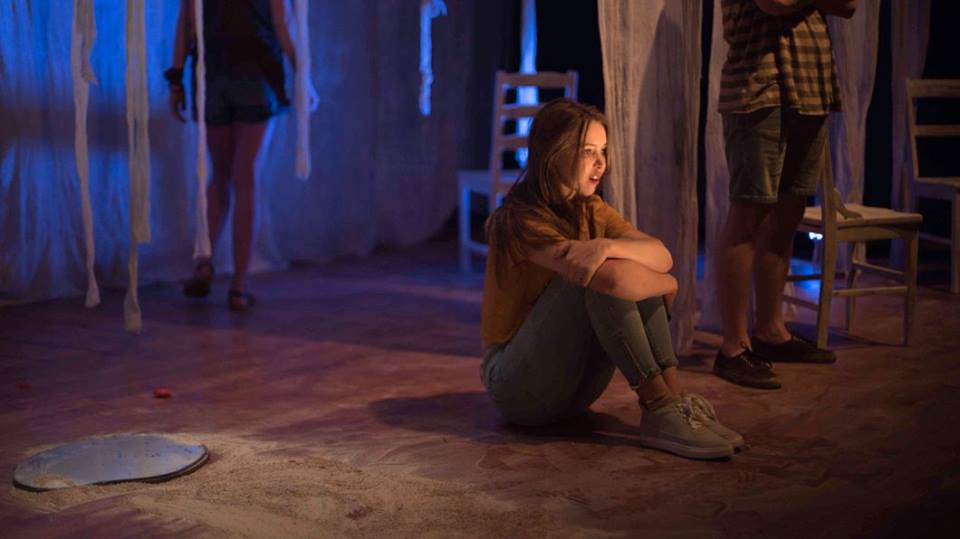
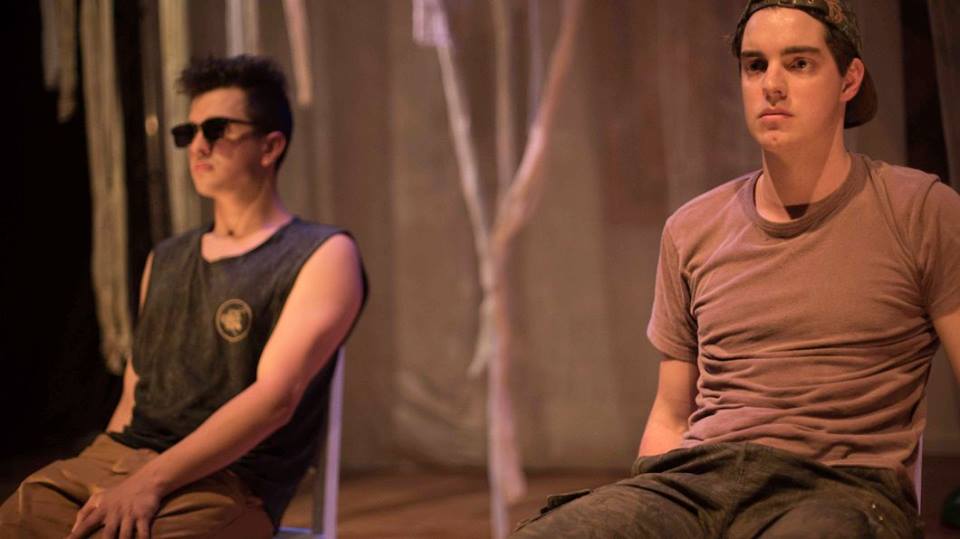
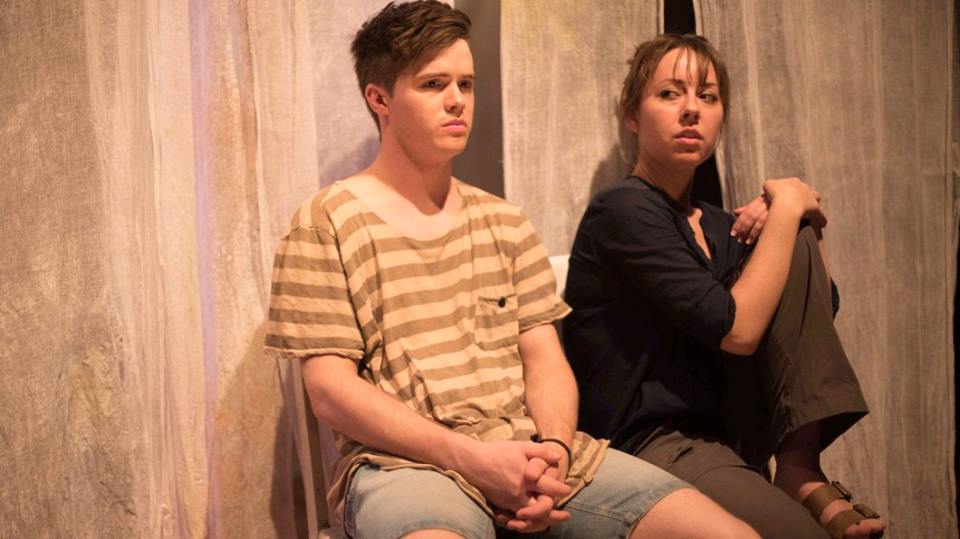
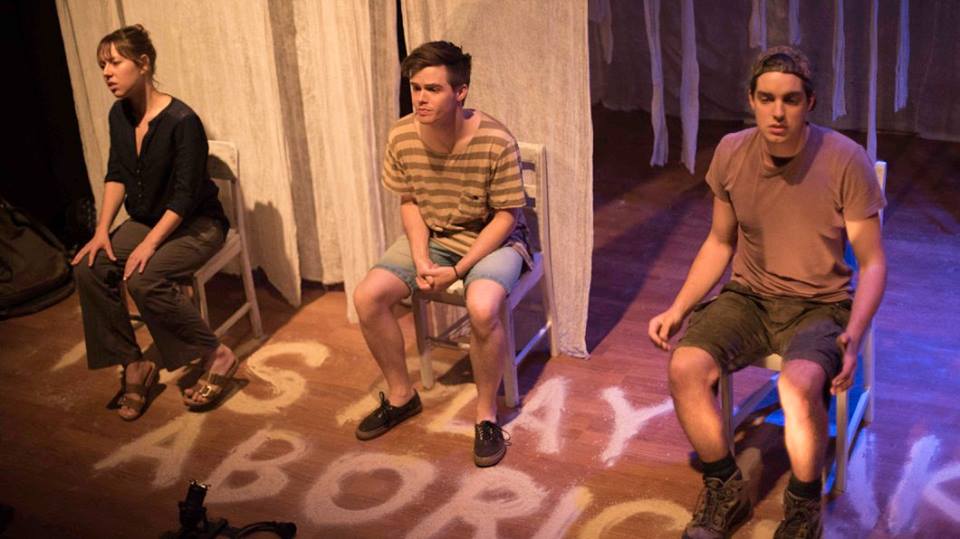
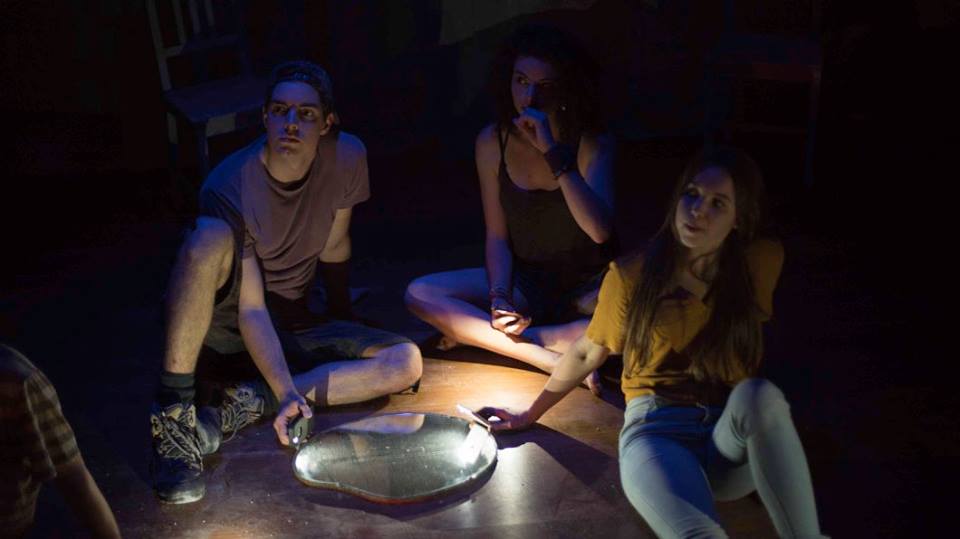
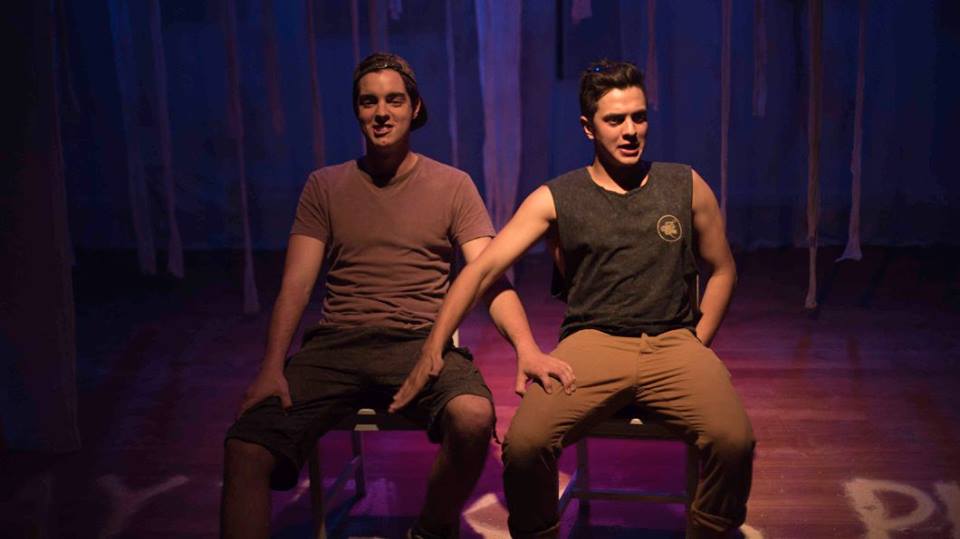
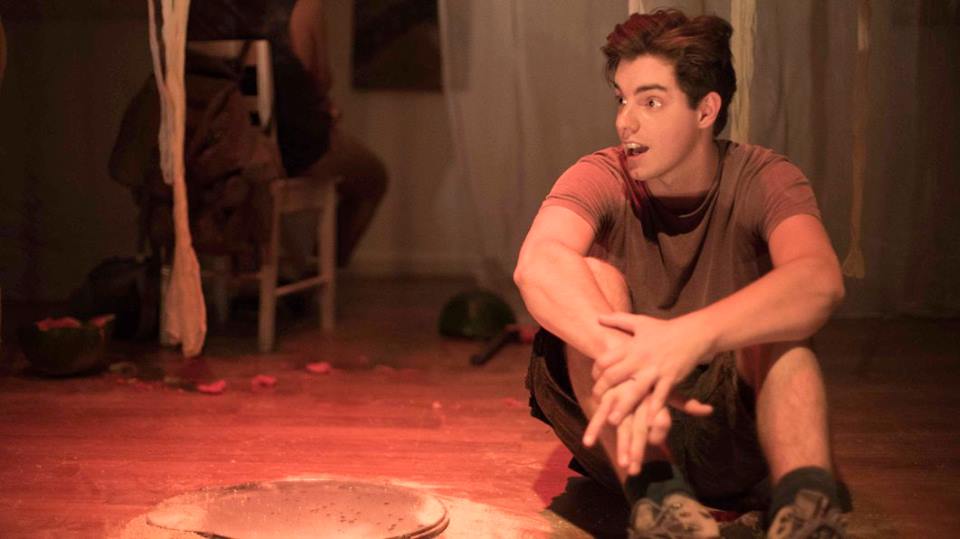
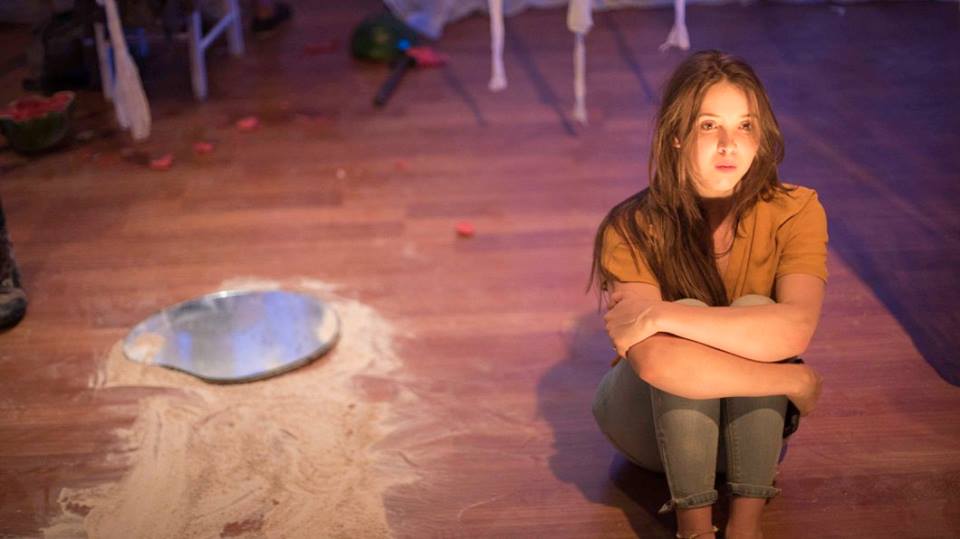
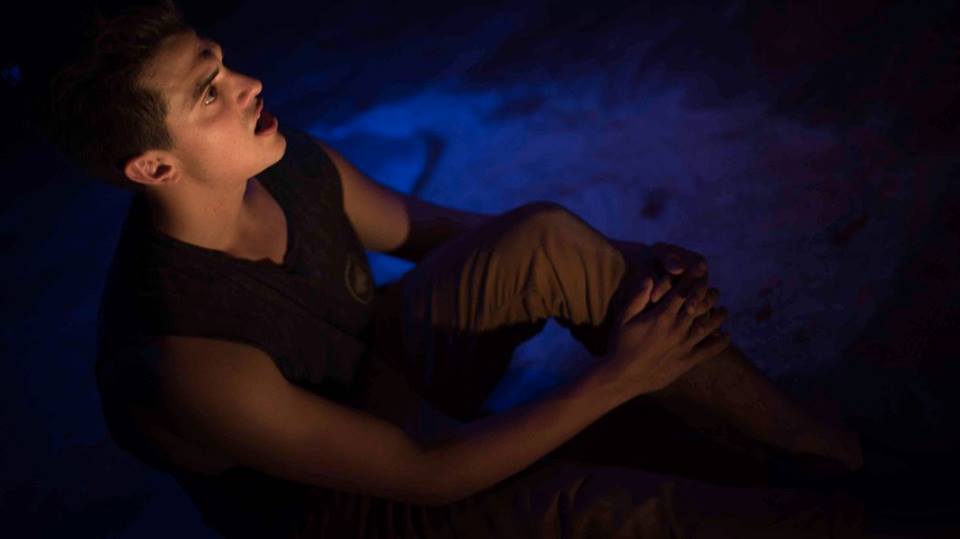
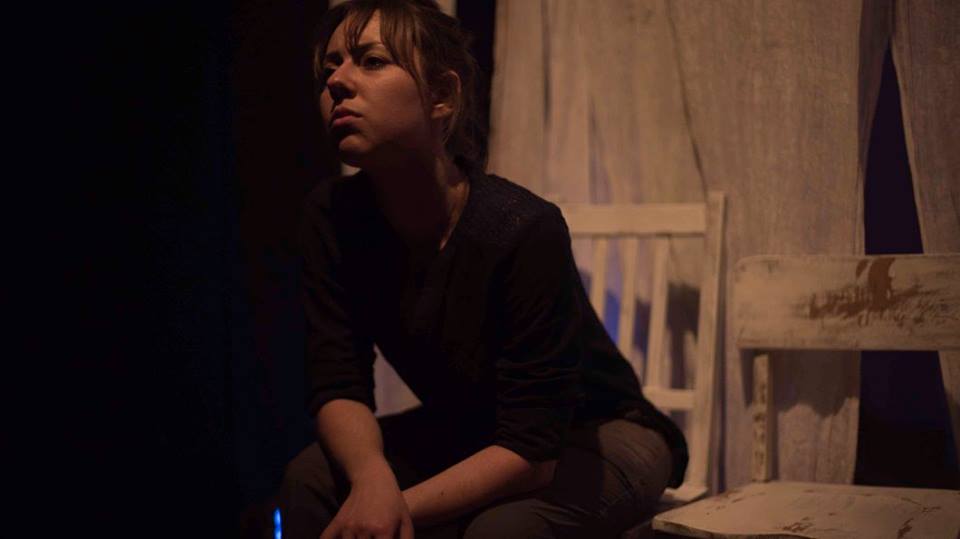
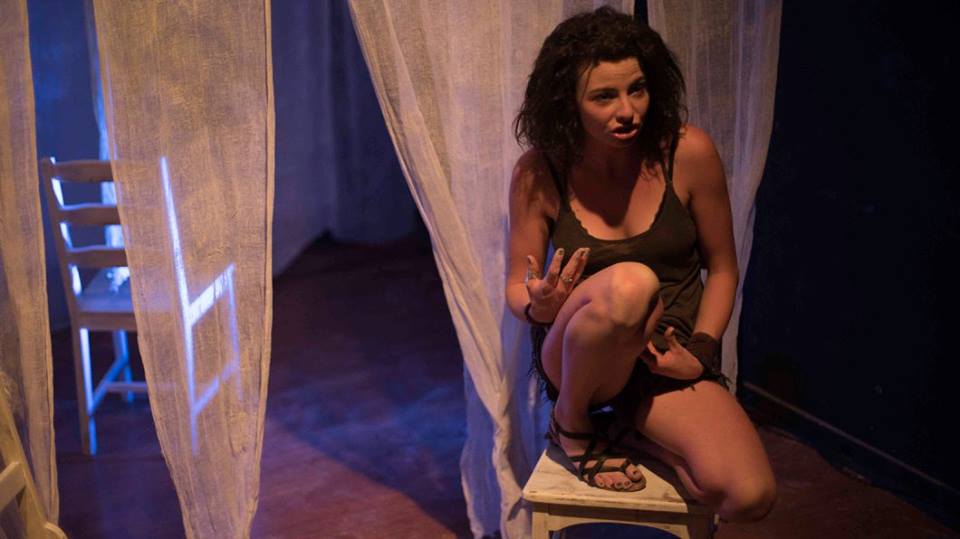
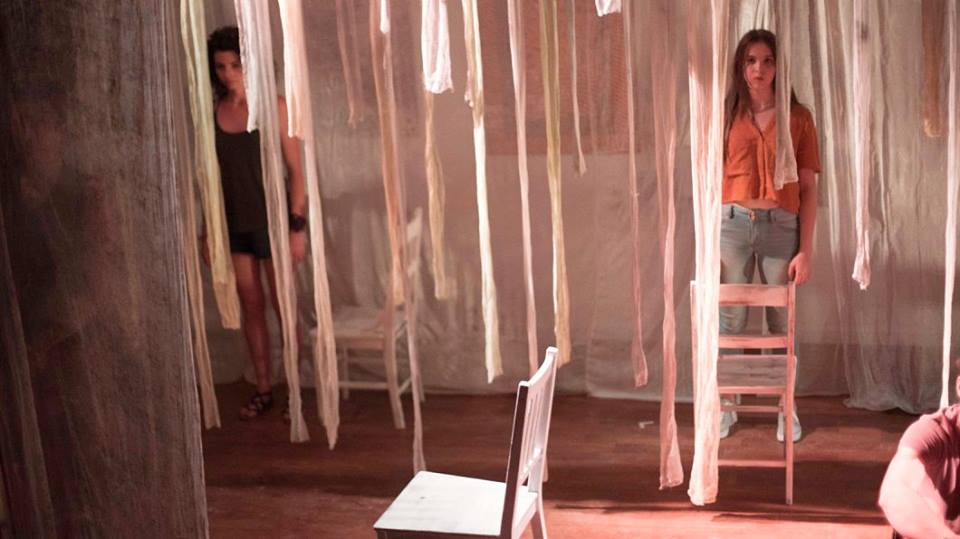
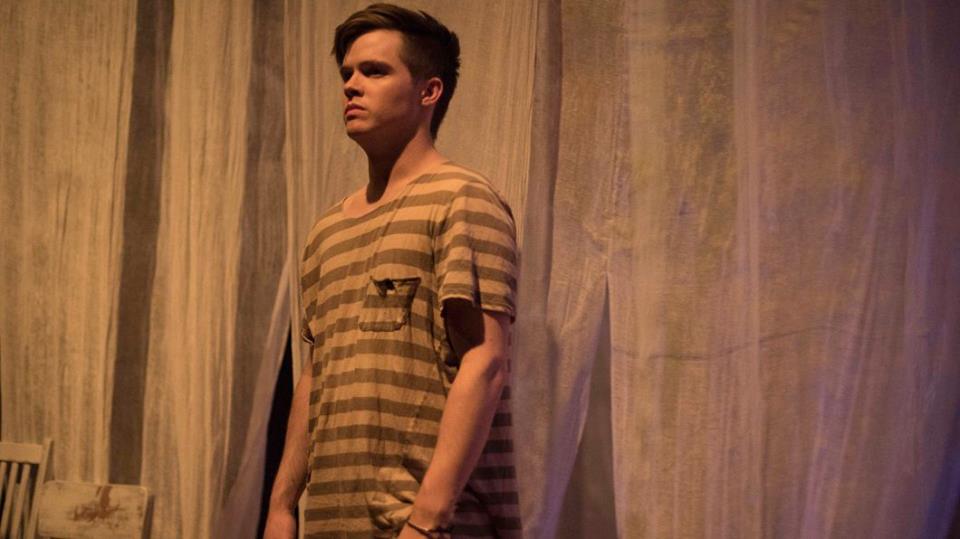
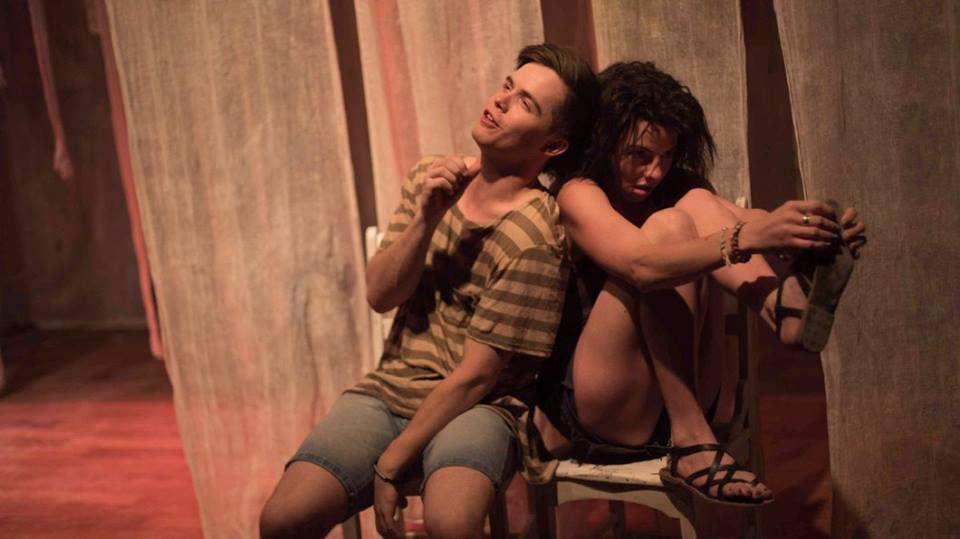
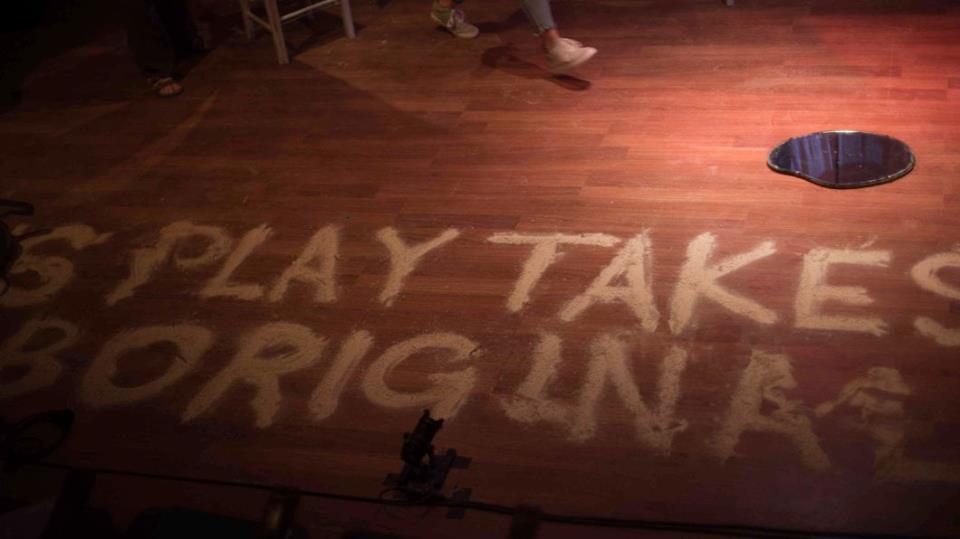
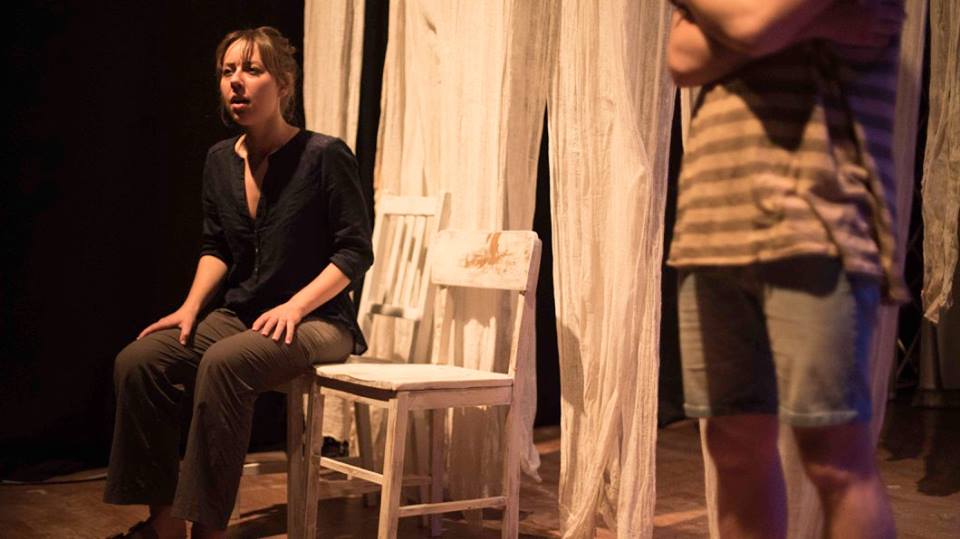
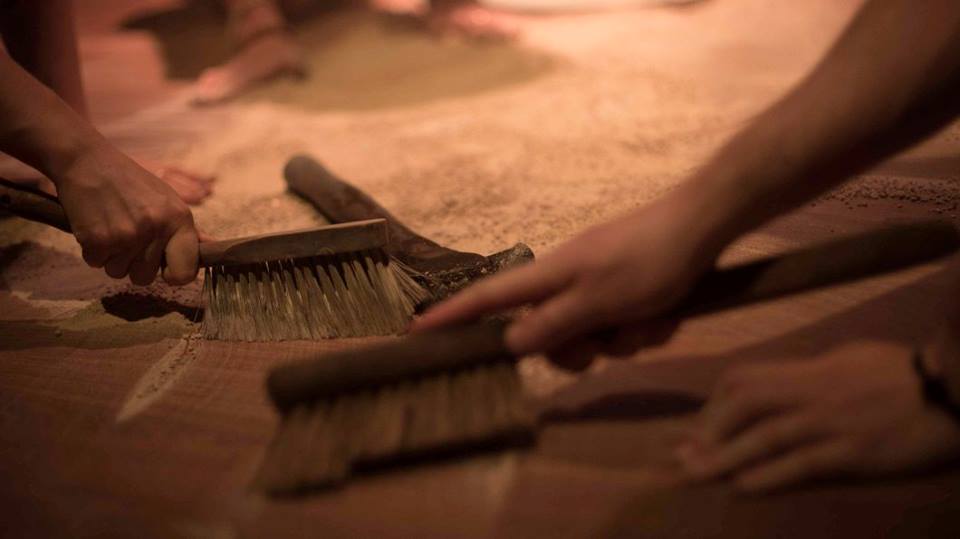
REVIEWS
‘Flood’ by Chris Isaacs – Old 505 Theatre
Reviewed by Matthew MacDonald, 17 Nov. 2016
The Buzz From Sydney
While international discussion – particularly in the troubled United States – seems ever drawn to the subject of racism and cultural tension, the subject of systematic prejudice against Indigenous Australians remains, for the most part, swept under the table. We still to this day treat it almost as a taboo, a problem that our politicians and a large percentage of our population seem to hope will eventually just disappear on its own.
Like all social issues, it won’t.
Flood is bold in its unique approach to this undercurrent of Australian racism. With a creative team and cast made up entirely of middle-class, mostly white and definitely not Indigenous people, it does this the only way it possibly can: through the perspectives of an outsider discovering the issues that have always been under his nose. While I strongly petition for a greater representation of Indigenous Australians in our entertainment industries, Chris Isaacs has taken a brilliant approach to highlight these issues without discussing it in a way he has no cultural right to.
The play follows six Western Australian teenagers driving into the outback for a secluded summer camping trip. Once there, their ideal vacation is interrupted by an altercation with an Indigenous man that the teenagers wrongly accuse of being drunk. The play goes on to deal with the naïvety of youth and the overwhelming power of guilt as secondary set pieces to the overarching story of unintentional racism.
The tension of the piece rises and falls with the incredibly unsettling sound design, incorporating harsh climaxes underpinned by an eerie didgeridoo. The ensemble is amazing, keeping high energies and stakes throughout the 70-minute play and remaining believably attached to the emotionally charged story.
The plot is predictable, but although you can anticipate each moment coming well ahead of time, this does little to dampen the thoughtful impact of the message of the play.
FlooD
Reviewed by Kevin Jackson, 13 Nov. 2016
Kevin Jackson's Theatre Diary
FLOOD, by Chris Isaacs, is an Australian play first presented in Perth, in 2014.
Six young white youths, three women and three men, take off for a camping break out in the wilds of Western Australia. Just driving without a clear mapping identity they find themselves kind of lost and end up setting up camp beside a pool, having disregarded a signpost laying in the dust. Bush noises, kangaroos, imaginations, spook the experience of the night in their tents and they, relievedly, in the light of day strip off naked and plunge into the pool only to be confronted by an aboriginal man questioning why they are there, what rights they thought they had in being there. An incident occurs and the youths flee the location, home to Perth, where the emotional aftermath haunts them and throws them into a state of guilt - putting them into a further tragedy, off kilter. It is a story of the ignorance of the young and the careless sense of proprietary rights they have to the land of Australia. Says Mr Isaacs: "It's a play that looks at implicit racial bias and the tribes we choose to align ourselves with and the outcomes of those alignments."
Although the form of the writing is that of a choral face-front storytelling mode, as if enacting a short story for us, which I have come to resist, the content of the writing was intriguing enough to overcome my personal prejudices. I was drawn into the material and gained an enveloped identity in experiencing the 'stakes' of the episodes.
The play is acted by a group of personable young actors with enthusiasms that sometimes are a consolation for the variable quality of their acting skills - their vocal skills, for instance give a lot of shouting and not much nuance in the use of range. Compensatory, as well, is the Direction by Charles Sanders, who has a great sensitivity and steady-hand with the characters and the material's content integrity - all the actors draw affecting characterisations under his guidance and the writer is placed centre of the exploration. The Design elements, Set and Costume, by Stephanie Howe, Lighting, by Lachlan Hogan and Sound by Charles Sanders and Lachlan Hogan, original music by, Johnny Daylight Lacey, all make gentle contribution.
Producer, Les Solomon, found this play while browsing the internet, coming across it by default, since other international choices had become unavailable for him to present. He says:
FLOOD jumped out at me. It is a wonder to me that this play has not already had a Sydney showing, so I am excited and pleased to be able to make this happen.
I am excited and, truly, pleased that he found this Australian play because the writing is fairly sophisticated and arresting. Deserves attention to be paid. "FLOOD jumped out at me."
That Mr Isaacs was in 2012 a member of Griffin Theatre Company's inaugural StoryLab group, and that he was a recipient of the inaugural JUMP mentoring program (2010) under the guidance of mentor Kate Mulvany, and that he has won awards both for FLOOD and IT'S DARK OUTSIDE and a nomination for a Helpmann Award in 2013, ought to alert the Griffin and Belvoir, the Sydney Theatre Company to this young man's writing. Certainly, this play supersedes some of the quality of the work I have seen on the Griffin stage of late.
This is a modest production of a writer of some potential. I recommend that you try to see FLOOD, this week, before it closes.
The actors are Elizabeth Burley, David Harper (excellent), Olivia Jubb, Aaron Lucas, Chandel Rose and James Wright.
FLOOD
Reviewed by Emily Richardson, 10 Nov. 2016
Upstaged Reviews
Flood, written by Chris Isaacs, is a play about a group of friends who go on a camping trip and end up becoming perpetrators of tragic circumstances. Implicated in the plot is the ignorance and guilt bound up in the relationship between non-indigenous and indigenous Australians - but this isn’t really in centre-focus. Both Isaacs and director Charles Sanders have expressed the intention for the play to focus on the experience that they can understand and express as white Australians, tempered by limited contact with, and understanding of indigenous peoples and their culture. Hence, the play does not feature indigenous actors. This is a worthy perspective to bring to the stage and one that should be given consideration in order to properly confront the bitter ignorance that continues to permeate non-indigenous Australians’ understanding of indigenous peoples and their culture.
While the production has a worthy aim and features some strong performances, I think the perspective could be explored in a more insightful way if the given circumstances of the play were more realistic. I’ll refrain from giving away plot detail for the fear of spoiling the show for viewers, but it didn’t ever quite strike me as wholly believable. Once the show passes its climactic point of no return I found myself wondering, why are we watching this? I felt detached from the world on stage and wasn’t privy to the high-stakes tension shared by the characters. To me, when prejudice, discrimination and injustice towards indigenous peoples is so prevalent in everyday life, alongside the ignorance of non-indigenous Australians, I don’t understand why we need this contrived circumstance to have a conversation about it.
A feeling of detachment was not helped by the frequent employment of spoken narration by the characters. Relevant here is the old adage ‘show, don’t tell’. Whilst I understand that some scenes would be immensely difficult to ‘show’ in a theatre space, some moments didn’t allow the actors to be present, instead forging a barrier to the story being told by talking around the action, instead of just doing it.
In pointing out these textual challenges, it must be said that all of the actors are very invested in the performance. They give utmost efforts, which results in a bubbling, youthful energy that at points menacingly turns to chaos. Sanders has aptly created a wonderful feeling of authentic friendship that is supported by the amusing way the friends speak and interact with each other. All performances are commendable. I enjoyed Olivia Jubb’s wild and free Frankie, being greatly humorous and a very natural presence on stage.
Stephanie Howe’s set design complements the play well in its versatility and it is interesting to observe the actors interacting with the space – particularly in the dust storm sequence. The movement of the dust through the space at different points serves contrasting purposes effectively. To me, it felt like an appropriate connection to land, which is a poignant image.
It is so important that Australian works are staged that engage meaningfully with the impact colonial invasion has had, and continues to wreak on indigenous peoples. As both Isaacs and Sanders highlight, the perspective of non-indigenous people must also be explored as a disheartening lack of knowledge and recognition perpetuates the chronic issues. In Flood, we see a hearty attempt and an example depicted of how cultural misunderstanding can culminate in woeful circumstances for all involved.


